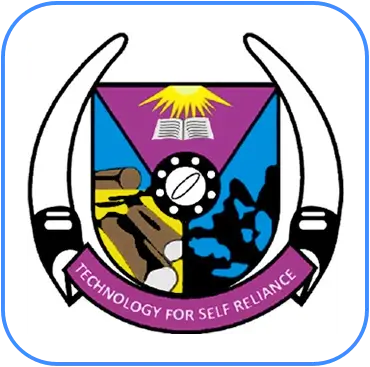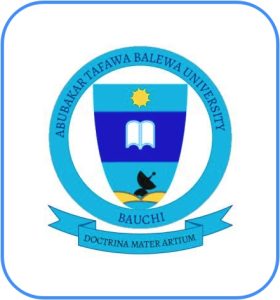In Nigeria, selecting a B.Tech. or B.Sc. degree is crucial for young people seeking a bright career, especially those aiming to thrive in areas like IT, construction, or telecommunications.
While both degrees provide solid educational foundations, a B.Tech. degree (Bachelor of Technology) stands out to equip students to handle real-world challenges in the engineering and technology sectors.
The choice isn’t just about earning a degree; it’s about finding the right skills for the current-evolving job market.
If practical, real-world training is what you’re after, a B.Tech might be the stronger choice, one that opens doors to industries that need problem-solvers ready to step in and make an impact.
Here’s why it matters more than you think.

B.Tech vs. B.Sc. Key Differences (What Young Nigerians Need to Know in 2025)
Unlike a B.Sc. (which focuses more on theory and research), B.Tech programs emphasize industry training and applied knowledge. This ensures that graduates are job-ready the moment they leave university.
A B.Tech degree offers technical skills that are highly valued in fields such as telecommunications, IT, manufacturing, and construction.
In today’s fast-evolving job market, where industries demand adaptable and skilled professionals, a B.Tech degree is often key to standing out, whether pursuing opportunities within Nigeria or abroad in digital sectors.

1. Focus and Curriculum
A B.Tech degree is heavily focused on practical applications. Students engage in hands-on learning with a curriculum designed to tackle industrial and technological challenges directly.
Several Nigerian institutions, such as Federal Universities of Technology in Akure, Minna, and Owerri, as well as Abubakar Tafawa Balewa University (ATBU), offer B.Tech degrees for students in engineering, technology, and applied sciences.
2. Hands-On Experience
A standout feature of B.Tech programs is the inclusion of industrial training or internships. This hands-on experience prepares young graduates for the workforce, giving them practical knowledge and insight into their chosen industries before they even graduate.
3. Duration of Study
In most Nigerian universities, B.Tech programs last five years due to the inclusion of intensive industrial training components, ensuring graduates are well-prepared for their careers.
4. Marketability and Industry Perception
Graduates with a B.Tech degree are highly marketable to employers in industries like engineering, construction, and ICT (information and communications technology).
Their practical experience makes them well-suited for positions requiring immediate productivity.
Sectors such as IT, construction, and telecommunications highly value the technical expertise that B.Tech graduates bring, positioning them favorably for early career opportunities and higher starting salaries.
5. Global Recognition and Career Opportunities
Both B.Tech and B.Sc. degrees are recognized globally. However, the B.Tech’s practical orientation gives it an edge in sectors and countries where hands-on experience is preferred.
B.Tech graduates excel in roles such as project management, industrial automation, software engineering, electronics, and mechanical engineering, making them versatile across engineering and tech fields.

Advantages of B.Technology for Young Fresh Candidates
1. Job Readiness
The practical skills and industry training in B.Tech programs ensure graduates are immediately employable in technical roles.
2. Higher Demand in Technological Industries
With the rise of tech-driven sectors in Nigeria and globally, as a B.Tech graduate, you have an upper-hand advantage in fields like IT, telecommunications, and engineering.
3. Better Salary Packages in Technical Fields
For jobs requiring technical expertise, B.Tech graduates command higher starting salaries compared to their B.Sc counterparts.
4. Versatility in Engineering Roles
B.Tech holders can transition easily between roles in engineering, industrial design, and applied sciences, without the need for extensive retraining.
Career Paths and Opportunities for B.Tech Graduates in Nigeria
The demand for B.Tech graduates in Nigeria is growing rapidly, especially in sectors like ICT, where the knowledge of software engineering and telecommunications is crucial.
Graduates with a B.Tech degree have a wide array of career opportunities across industries like telecommunications, construction, manufacturing, or information technology.
These industries actively seek individuals with hands-on technical expertise. For fresh graduates, the ability to hit the ground running in these industries is a huge advantage.
With the practical training that comes with a B.Tech program, employers in Nigeria and beyond value the technical capabilities graduates bring, positioning them as ideal candidates for engineering and technology-related jobs.
B.Tech vs. B.Sc: Which is Better for the Future of Technology in Nigeria?
B.Tech (Bachelor of Technology) and a B.Sc. (Bachelor of Science). Each offers its benefits, but they serve different purposes depending on the student’s career goals.
The B.Tech degree, particularly in Nigerian universities like the Federal University of Technology, Owerri, or FUTA, emphasizes practical skills and industry-based learning.
This makes it the better option for those looking to jump straight into the workforce, especially in technical fields like engineering, information technology, and telecommunications.
In contrast, a B.Sc. is more theory-oriented and may be better suited for those pursuing research or academic careers.
However, in terms of immediate job readiness and marketability in Nigeria’s rapidly evolving tech landscape, the B.Tech degree holds a distinct advantage, particularly for industries like construction and ICT where practical skills are key.
Top Nigerian Universities Offering B.Tech Programs
Several Nigerian universities are highly regarded for their B.Tech programs. These institutions not only provide accredited engineering programs but also ensure their graduates are ready for the demands of the real world.
Among the top universities offering B.Tech degrees are:
1. Federal University of Technology, Akure (FUTA) – Known for its innovative approach to engineering and technology education, FUTA is a leader in telecommunications, industrial design, and IT-based engineering roles.

2. Federal University of Technology, Owerri (FUTO) – With a strong emphasis on applied sciences and industrial exposure, FUTO graduates are highly sought after in industries like automotive engineering, construction, and ICT.

3. Abubakar Tafawa Balewa University (ATBU) – ATBU offers extensive programs in civil engineering, computer engineering, electrical engineering, and mechanical engineering, preparing students for dynamic careers in infrastructure development, manufacturing, and power generation.

These B.Tech universities in Nigeria ensure students are well-prepared to tackle the challenges of the engineering sector, both domestically and internationally.
How the B.Tech Degree Will Evolve by 2030
As the world moves toward a more technology-driven future, the B.Tech degree is evolving to keep up with the demands of modern industries.
In Nigeria, where the need for skilled professionals in engineering and technology is growing, universities are beginning to adapt their curricula to focus on emerging fields like artificial intelligence (AI), robotics, and renewable energy.
By 2030, many B. Tech programs will likely place greater emphasis on areas like data science, automation, and sustainable technologies.
Nigerian graduates with a focus on these future-proof disciplines will be highly competitive not only within the country but also in international markets.
The rise of sectors like renewable energy, smart infrastructure, and AI-driven engineering will create a higher demand for B.Tech holders with specialized technical skills.
Universities like FUTA, FUTO, and ATBU are already making strides to incorporate these changes, ensuring that their graduates are prepared for the future of engineering.
Conclusion
In Nigeria, the main distinction between B.Tech and B.Sc. programs lies in their focus. While B.Sc programs lean towards theory and are better suited for academic or research roles, B.Tech programs are practical and industry-focused.
For those looking to enter the workforce quickly with solid technical skills, a B.Tech degree provides clear advantages in terms of job readiness and marketability within technological industries.
B.Technology is a desirable choice for individuals who wish to enter the workforce rapidly and with excellent technical abilities because it provides obvious benefits in terms of job readiness and marketability in technological domains.
FAQs
1. What is the difference between a B.Tech and a B.Sc. degree in Nigeria?
The main difference lies in their focus. A B.Tech (Bachelor of Technology) emphasizes practical, hands-on training and industry-related skills, making it more suited for technical roles in fields like engineering, IT, and telecommunications.
A B.Sc. (Bachelor of Science), on the other hand, is more theory-based, preparing students for academic and research careers.
2. How long does it take to complete a B.Tech program in Nigeria?
Typically, a B.Tech program in Nigerian universities takes about five years to complete, which includes industrial training or internships designed to give students practical experience before graduation.
3. What are the job prospects for B.Tech graduates in Nigeria?
B.Tech graduates are highly sought after in industries such as telecommunications, information technology, manufacturing, construction, and engineering.
Due to their practical training, they often have an advantage in the job market, especially in technical and problem-solving roles.
4. Which Nigerian universities offer B.Tech programs?
Some of the top Nigerian universities offering B.Tech degrees include the Federal University of Technology (FUTA, FUTMINNA, and FUTO), Abubakar Tafawa Balewa University (ATBU), and Ladoke Akintola University of Technology (LAUTECH), among others.
5. Is a B.Tech degree recognized internationally?
Yes, a B.Tech degree is widely recognized internationally, especially in countries and industries that value technical and practical skills.
Graduates often find opportunities in global sectors such as engineering, telecommunications, and IT.
6. What industries favor B.Tech graduates?
Industries such as information technology, telecommunications, manufacturing, construction, and engineering tend to favor B.Tech graduates due to their hands-on skills and ability to adapt quickly to practical challenges.
7. Are internships mandatory in B.Tech programs?
Yes, internships or industrial training are usually mandatory in B.Tech programs in Nigeria. These opportunities provide students with hands-on experience, allowing them to apply their academic knowledge in real-world settings.
